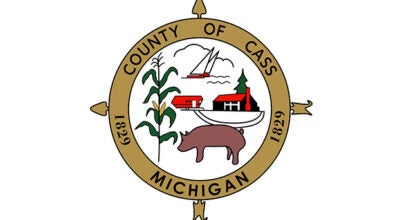AG to health care companies: implement opioid mitigation programs to save lives
Published 10:42 am Monday, October 23, 2017
Michigan Attorney General Bill Schuette has joined with a bipartisan group of attorneys general from 17 states, as well as the District of Columbia and U.S. Virgin Islands, to call on more than a dozen health care companies that provide pharmacy benefit management services to implement programs to reduce prescription opioid abuse.
In addition, the attorneys general sent a letter to the president and CEO of CVS Health Corporation applauding the company’s recent program that automatically enrolled all commercial, health plan, employer and Medicaid clients in an opioid abuse mitigation program.
“Opioid addiction can take root as a result of an injury and a legitimate prescription for an opioid pain reliever designed to make the patient feel better,” Schuette said. “Opioid addiction doesn’t see race, gender, socioeconomic status, it just sees another victim. We can’t fight this ever-growing threat with law enforcement efforts alone, we need partnerships across industries to make a dent in the problem.”
In their letters to the PBMs, the attorneys general asked that the companies adopt similar measures as CVS, including limiting to seven days the supply of opioids dispensed for certain acute prescriptions for patients who are new to the therapy, limiting the daily dosage of opioids dispensed based on the strength of the opioid, and requiring the use of immediate-release formulations of opioids before extended-release opioids are dispensed. The CVS program’s requirements are similar to the opioid prescribing guidelines recently issued by the Centers for Disease Control and Prevention.
The multistate PBM letters were sent to:
• Argus Health Systems, Inc.
• Benecard Servies LLC
• Envision Pharmaceutical Services LLC
• Envolve Health
• Express Scripts Inc.
• Humana Inc.
• Magellan Rx Management
• MedImpact Healthcare Systems Inc.
• Navitus Health Solutions LLC
• OptumRX Inc.
• PerformRx
• Prime Therapeutics Inc.
• ProCare Rx
• RxAdvance
• WellDyneRx
“The opioid epidemic is the most pressing public health crisis our country faces,” the attorneys general wrote. “It affects every state and has a devastating impact on communities – tearing apart families and stretching the budgets of local law enforcement and first responders as they do the difficult work on the front lines. For our part, attorneys general are pooling resources and coordinating across party lines to address the crisis.”
In addition to Schuette, those joining one or both of Friday’s letters include attorneys general from Alabama, Arizona, Connecticut, Delaware, Georgia, Indiana, Iowa, Louisiana, Maine, Montana, New Hampshire, Rhode Island, South Carolina, Utah, Virginia, West Virginia, the District of Columbia and the U.S. Virgin Islands.
Opioids, both prescription and illicit, are now the main driver of drug overdose deaths nationwide. According to CDC, opioids were involved in 33,091 deaths in 2015, and opioid overdoses have quadrupled since 1999.
According to statistics from the Michigan Department of Health and Human Services, approximately 1,365 people died as a result of an opioid overdose in 2016, compared to 884 in 2015 and 426 in 2012, meaning Michigan’s overdose rate has tripled since 2012.
In September, Schuette joined a bipartisan coalition of 41 state attorneys general in an investigation of both the manufacturers and the distributors of prescription opioid drugs.
The attorneys general are actively investigating the following pharmaceutical manufacturers and their related entities:
• Endo International plc
• Janssen Pharmaceuticals
• Teva Pharmaceutical Industries Ltd./Cephalon Inc.
• Allergan Inc.
• Purdue Pharma
The attorneys general are also seeking documents and information about distribution practices from the following medical prescription distribution companies, who together manage approximately 90 percent of the nation’s opioid distribution:
• AmerisourceBergen
• Cardinal Health
• McKesson
The investigation is ongoing.
On Oct. 4, Schuette joined another bi-partisan coalition of attorneys general asking Congress to change federal law to make treatment for opioid addiction more affordable and accessible. The coalition of attorneys general sent a letter to the U.S. House of Representatives regarding HR 2938, the “Road to Recovery” Act, asking Congress to allow for Medicaid to pay for large, residential addiction treatment facilities, opening new avenues for addiction treatment while maintaining appropriate restrictions on mental health facilities.
A key part of the Department’s Criminal Division, Schuette’s Opioid Trafficking and Interdiction Unit is comprised of four assistant attorneys general, each with extensive backgrounds in drug crime prosecution. The unit is focusing on cases that cross both state and county lines, involve multiple major actors, and high volumes of heroin and other opioid-based drugs.
The unit has already taken on nearly 50 cases, with multiple convictions and more than a dozen currently facing charges.
The cases have been and will continue to be charged in cooperation with local law enforcement, Michigan State Police narcotics teams and federal agencies.
The unit will also take on felony murder cases in which it is alleged that the delivery of opioids has caused death.






